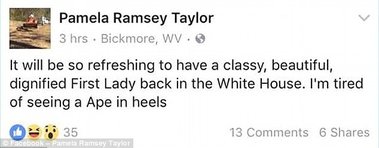Freedom vs Censorship
Jada Walker-Mitchell
In 2017, where words can cause such a large impact and have sizeable consequences, the term ‘freedom of speech’ is thrown around quite carelessly. I would argue that it is used to allow people to completely absolve themselves from all responsibility of their words. But what does it actually mean? Freedom of speech is the right to articulate one’s opinions and ideas without fear of government retaliation or censorship, or societal sanction, restraint, or legal penalty. It doesn't imply complete liberty - it is not an excuse for bigoted speech. So where is the line drawn, what is the moral boundary between your honest opinion and inappropriate slander?
Following the aftermath of the Brexit decision there has been a terrifying increase in hate crimes across Europe, often condemning immigrants and those deemed to be “foreigners” to living in fear. Brexit can be interpreted as the public way of unanimously expressing their discomfort towards immigration (although, honestly, we all know that it is not that simple) and many have construed it in this way for their own political gain, thus leading to the open, callous harassment of innocent people. Similarly in the USA, subsequent to Trump’s election as president, previously reserved Americans have found the confidence to illustrate their hostility to people different to them, whether that be in terms of race, religion or sexuality.
How is it that we are opposed to free speech when other demographics use it to voice their opinions against traditional western values, yet whenever we want to say something slightly controversial, it’s morally okay?
Is this only a valid method of defence if what you’re saying complies with white, western, middle class and heteronormative ideologies?
Following the aftermath of the Brexit decision there has been a terrifying increase in hate crimes across Europe, often condemning immigrants and those deemed to be “foreigners” to living in fear. Brexit can be interpreted as the public way of unanimously expressing their discomfort towards immigration (although, honestly, we all know that it is not that simple) and many have construed it in this way for their own political gain, thus leading to the open, callous harassment of innocent people. Similarly in the USA, subsequent to Trump’s election as president, previously reserved Americans have found the confidence to illustrate their hostility to people different to them, whether that be in terms of race, religion or sexuality.
How is it that we are opposed to free speech when other demographics use it to voice their opinions against traditional western values, yet whenever we want to say something slightly controversial, it’s morally okay?
Is this only a valid method of defence if what you’re saying complies with white, western, middle class and heteronormative ideologies?
Other Sites |
|
